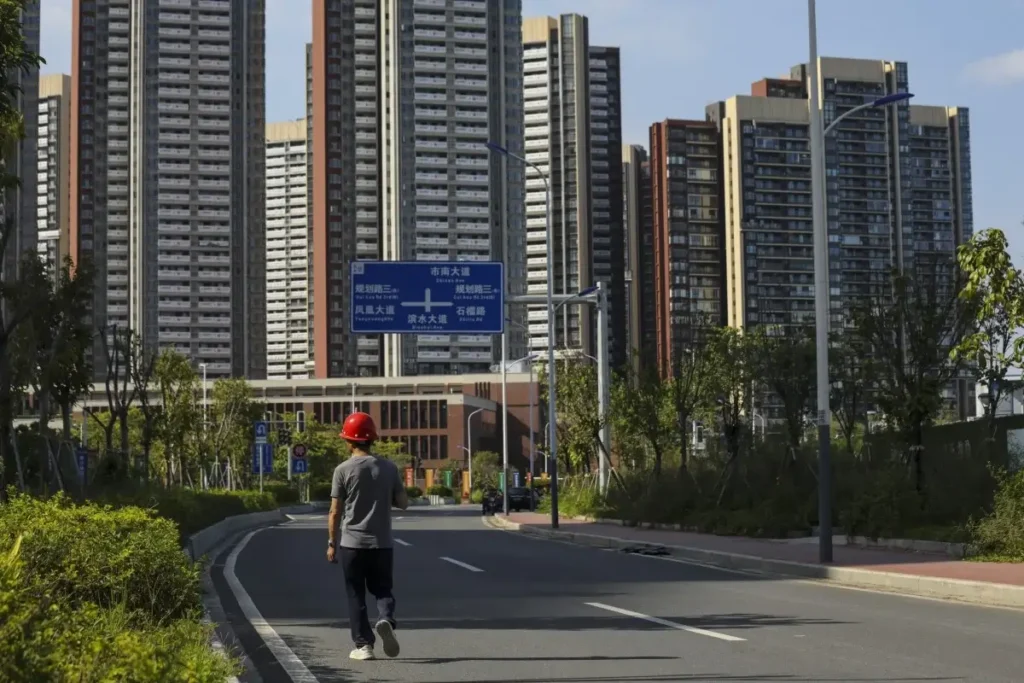China’s property market is experiencing a major shift, as three of the country’s largest cities—Shanghai, Guangzhou, and Shenzhen—have eased homeownership restrictions to stimulate the market. The easing of these curbs is part of a broader strategy by both central and local governments to support the housing sector, which has been suffering from a prolonged slowdown.

Guangzhou Leads the Way in Policy Deregulation
Guangzhou, the capital of Guangdong province, has taken a leading role in relaxing restrictions on home purchases. As of October 1, 2024, all homebuying curbs for both locals and non-locals have been removed. This deregulation is a major step forward, particularly for non-local buyers who were previously required to meet stringent criteria. Before this change, non-local buyers had to prove their participation in the city’s pension system or fulfill other requirements that made it difficult for outsiders to invest in the local market.
Yan Yuejin, vice-president of E-house China Research and Development Institute, noted that “Guangzhou’s deregulation has set the tone for policy changes across the country.” This sentiment is being echoed across other major cities in China, including Shanghai and Shenzhen, where similar relaxations have been implemented.
Shanghai and Shenzhen Follow Suit
In Shanghai and Shenzhen, homebuying restrictions have also been significantly loosened. These two cities have long been attractive markets for property investors due to their status as financial and tech hubs. Until now, non-local buyers faced strict eligibility requirements, including several years of local tax payments. In Shanghai, for example, the rule was previously three years of local tax payments, but this has been cut to just one year, making it far easier for people from other regions of China to buy homes in the city.
Additionally, both cities have introduced new incentives for property owners. For example, sellers in Shanghai who have held a live-in property for two years are now exempt from the 5.5% capital gains tax, down from the previous five-year holding period. Similarly, Shenzhen has introduced similar measures to encourage more activity in its real estate market.
Stimulus from the Central Government
These local actions come in the wake of a massive stimulus package announced by the central government. Last week, the government instructed commercial banks to cut mortgage rates and reduce down payments for second-home purchases, further lowering the barriers for homebuyers. These measures are expected to reduce the loan servicing burden by 150 billion yuan (USD 21.4 billion) annually, offering much-needed relief to buyers.
According to Pan Gongsheng, the Governor of the People’s Bank of China, these mortgage rate cuts will provide a significant boost to the property market, which has been underperforming since the government’s clampdown on property speculation with its “three red lines” policy in 2020.
A Surge in Home Purchases
The policy changes have already had an impact, with cities like Shanghai reporting a sharp increase in property transactions. In just one day, 872 homes were sold in Shanghai, an 80% increase over the average daily sales figures for September. Property buyers in Shanghai are anticipating that these policy shifts, combined with the government’s backstopping of the crisis, will lead to rising home prices in the near term. As demand surges, real estate agents in the city are receiving more inquiries from potential buyers eager to capitalize on these new opportunities.
“Significant steps are being taken to encourage homebuying during the coming holiday,” said Yan Zhancai, a sales consultant at Lianjia, China’s largest real estate brokerage firm. “We expect a wave of inquiries and transactions as pent-up demand is released.”
Predictions for the Future of China’s Property Market
The easing of homeownership restrictions in these top-tier cities is expected to have a lasting impact on China’s property market. While the immediate surge in transactions is promising, the long-term effects of these changes remain to be seen. Analysts are predicting that other major cities in China could follow in the footsteps of Guangzhou, Shanghai, and Shenzhen, further boosting the national housing market.
Moreover, the reduction of down payments and mortgage rates is likely to stimulate more activity among both first-time homebuyers and investors. The People’s Bank of China has made it clear that these measures are part of a broader strategy to revitalize the housing market, which has struggled in recent years due to economic uncertainty and regulatory challenges.
Final Thoughts
China’s easing of homeownership curbs is a game-changer for the country’s housing market. With Guangzhou leading the way and Shanghai and Shenzhen following suit, the property market is poised for a significant revival. The combination of local policy changes and central government stimulus measures has created a favorable environment for both homebuyers and investors, paving the way for future growth.
As we continue to monitor these developments, stay up to date with the latest news and analysis on Property News Asia, your go-to source for real estate trends across Asia.
